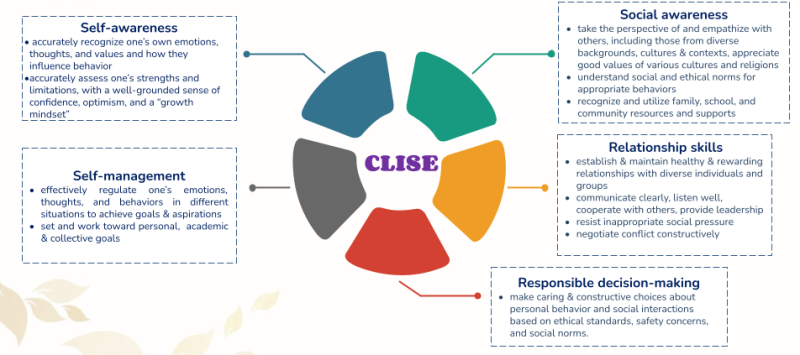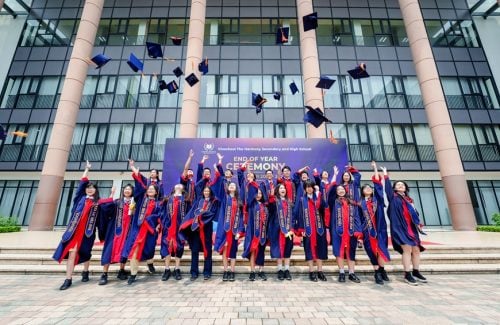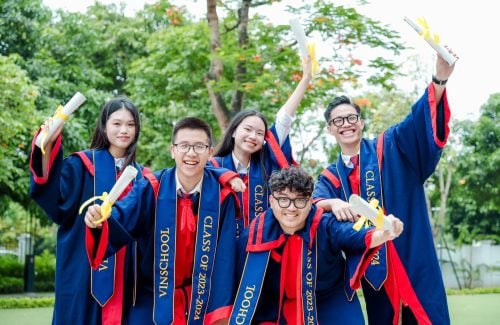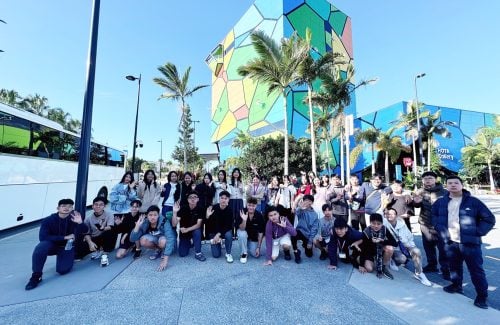Explore Vinschool’s Exclusive Subjects (Part 1) – Character and Life Skills Education (CLISE)
In a constantly changing world with the rapid development of technology and artificial intelligence, developing students’ skills and characters is the key objective of general education. At Vinschool, the Character & Life Skills Education (CLISE) program is designed to comprehensively develop values, personality and life skills for students from Grades 1 to 12.
CLISE is one of the three distinctive subjects exclusively available at Vinschool, in addition to Vietnamese Studies and Global Citizenship. Designed by leading international and Vietnamese education experts, CLISE helps students build, practice and develop skills and personal attributes, thereby improving academic results and shaping personality. In particular, CLISE helps students form essential competencies and qualities to live a successful and happy life and form desirable values for themselves, their families and community. This article will explore the unique features of CLISE program at Vinschool.
What does the CLISE program include?
The CLISE curriculum at Vinschool is designed based on Collaborative for Academic, Social, and Emotional Learning (CASEL)’s competency framework, one of the world’s leading organizations in emotional and social skills. It comprises 5 skill areas that help learners develop a healthy sense of self, manage stress, understand others’ perspectives, and create a learning environment and community where everyone can develop their strengths and passions.
Students learn CLISE skills as a standalone subject while practicing and applying those skills in other subjects. They can apply empathy skills to analyze literary characters when learning Vietnamese, utilize critical thinking when searching for information, and discuss different points of view in social sciences and humanities subjects (such as history and GCED), or apply collaboration and problem-solving skills in natural Sciences or mathematics.
At elementary school level, the CLISE program helps students learn to stay calm when they get angry and take a more active role in the classroom. In addition, the subject helps students become more confident in raising questions and expressing their viewpoints. Studies show that students need to be equipped with self-control and self-regulation skills to behave properly in the classroom, understand and effectively apply teachers’ instructions, and stay focused and passionate about learning. The CLISE elementary school program focuses on aspects directly related to students’ academic performance (or learning support skills) and cognitive skills (such as concentration, memory and behavioral control skills).
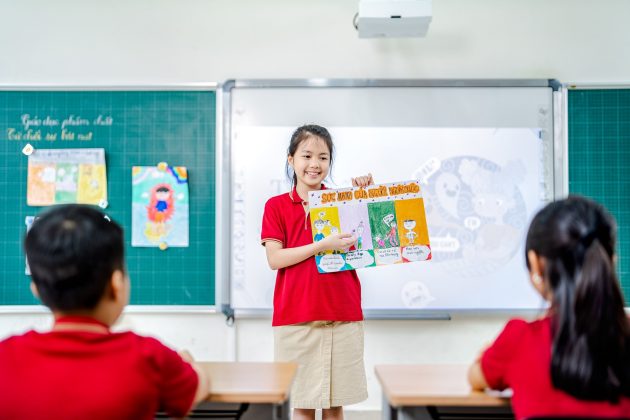
The CLISE program for secondary and high school helps students develop thinking, planning, and execution to achieve their goals. It also enables students to master relationship management skills and participate actively and effectively in school and in life. In addition, students will develop problem-solving skills at a higher level than at primary school, apply them to other subjects and handle personal and social conflicts, make responsible decisions and take control of their own life.
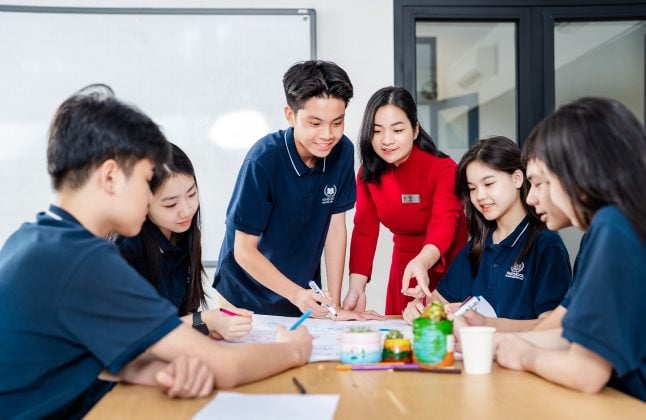
In the learning process, teachers use a variety of teaching methods to guide students through three stages of knowledge acquisition: acquisition, criticism, and transformation. These methods include telling stories, holding discussions, giving experimental sessions, asking students to analyze and apply knowledge in practice, using dialogue and role-play strategies, dealing with real-life or hypothetical situations and reflective activities to reinforce students’ insights.
“The teaching model focuses on personal discovery rather than teaching. Therefore, the role of teachers when delivering the CLISE program is facilitating and accompanying students in their learning and maturity and character development process,” said Mr. Nguyen Bao Trung, Vinschool’s CLISE coordinator.
Form of student assessment in CLISE subject
For primary school students, assessment is done through teachers’ continuous observation during the learning process. Teachers assess students’ proficiency according to the competency requirements.
During secondary school, students are assessed through team projects. They are asked to apply the skills they have learnt to develop and present their team projects (e.g. designing a workshop on reducing academic stress or creating a handbook to help develop family relationships). During the project, they are also asked to self-monitor, reflect and self-assess their contributions to the project, work performance, and interaction with other team members. The process helps them better understand themselves. The preparation for the project also becomes a learning process for the students themselves.
To be successful in CLISE, students need to explore topics through logical reasoning, consider multiple points of view, engage in dialogues and debates to develop critical thinking. They also need to reflect to create personal experiences. Besides, they are encouraged to actively participate in hands-on activities such as cooperative learning (e.g. team projects, student-led discussions, and team games), creative expression (e.g. art, music, performance, poetry), community projects and environmental sustainability (via direct access to nature) to transform acquired concepts into concrete and meaningful actions.
Develop and refine skills beyond the classroom
CLISE skills are applied not only in the classroom but also in other activities at school, from the way students are welcomed in the morning to discipline practice and personal development in building positive relationships and other CLISE competencies.
Vinschool also facilitates and supports students to organize talk shows on current topics relevant to teenagers (such as mental health and healthy relationships) to develop necessary skills and practice critical thinking. Vinsers will organize and invite speakers to the events, and take part in the interactive activities. These talk shows provide students with opportunities to actively create meaningful activities for their lives and discuss more deeply about issues they care about.
Apart from school, home is also an environment in which students experience and interact with every day. Vinschool regularly listens to and works closely with families to determine priorities and strategies to help students practice CLISE skills. Vinschool also provides students with opportunities to apply CLISE to practical activities by collaborating with community organizations to achieve important goals during the school year. With CLISE, the aim is to create a school and learning environment where every student feels connected, inspired, engaged and willing to contribute to the world around them.
For details about the program, parents can contact Vinschool via [email protected] or 18006511 (select language and dial extension 1).

